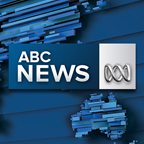
London is a neophiliac’s playground. It feels like the future. “Energy is eternal delight,†declared William Blake, and his words could well sum up London itself. So it seems absolutely right that this dynamic, shifting, enveloping metropolis is the first major Western city to elect a Muslim as its mayor. How many Muslims have achieved an equivalent high-profile leadership position in Australia?
Mayor Sadiq Khan’s back story should be set in stone within the Handbook of Audacious Meritocracy. The son of a bus driver father and seamstress mother from Pakistan, he has six brothers and a sister. They were raised in a tiny, suburban, three-bedroom council house. Khan went to a tough state school and credits his principal, Naz Bokhari, with making him realise “skin colour or background wasn’t a barrier to making something of your lifeâ€. Make something of a singular life he certainly did – he triumphed over the old Etonian Tory son of a billionaire, Zac Goldsmith. In London, the best man truly did win, with a thumping 57 per cent of the vote.
The diminutive, teetotal, gay-marriage supporting Khan never pussyfoots around when acknowledging the importance of his Muslim faith. In his maiden political speech he spoke about his father teaching him the Prophet Mohammed’s sayings, especially the principle that “if one sees something wrong, one has the duty to try to change itâ€. He’s a complex, thoughtful, uniting man in a world that too readily falls into simplistic divisiveness. The Tory campaign, run by Australian Lynton Crosby’s political strategy firm, peddled fear and suspicion about Khan’s Muslim connections, but the majority of Londoners were too evolved for that particular brand of knee-jerk nastiness.
As narratives go, Khan’s is a ripper, aided by a metropolis where so many people go to lose themselves and start all over again, to reinvent themselves. As an immigrant, you arrive in that mighty city with expectation blazing under your skin.
Darwin, oddly, always feels like the future to me, out of any Australian city; an open, relaxed, inclusive future. Its proximity to other worlds gives it a unique and lively flavour; it’s always been a refuge for those from other places, running away from proscribed, narrower lives. The city elected Australia’s first Chinese-Australian lord mayor in the mid-’80s.
The bamboo ceiling in this country is an uncomfortable fact. Asian students blitz it in our schools, so why do we not see more of those extremely bright individuals filtering into more of our political leadership and managerial positions? It’s a great unexamined story of modern Australia, but perhaps we don’t feel an urgency to examine it because the conclusions may be a tad too uncomfortable to bear thinking about.
Days after Khan’s London victory, Waleed Aly took home the Gold Logie in Melbourne. He dedicated his win to those with an “unpronounceable nameâ€. Migration is a fact of the modern world. We cannot stop it or deny it, cannot bury our heads in the sand about it. This is the great age of movement between countries, and London’s rangy, open, embracing energy is the living embodiment of it. Australia, in contrast, feels like it’s stepping back from the wider world, circling the wagons; turning inward and paranoid just like the Tory campaign for London’s soul. I’m ready for something more muscular, courageous, evolved. Aly’s Logie win – by popular vote, no less – proves that a lot of Australians are, too.
These are not our proud years, but our defensive, paranoid ones. Yet there’s hope, as Aly indicated in his acceptance speech: “If tonight means anything, it’s that the Australian public, our audience, as far as they’re concerned, there’s absolutely no reason why [the status quo] can’t change.â€






 Add Category
Add Category